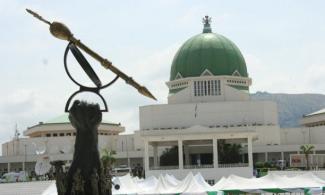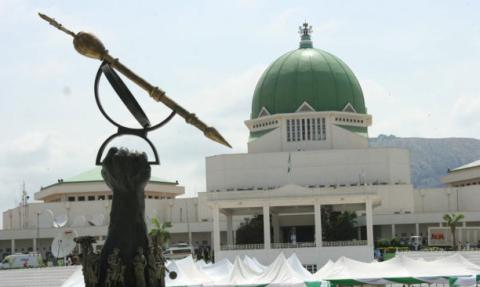
The President in December vetoed the bill, leading to a fresh amendment by the National Assembly.
The National Assembly has transmitted the Electoral Act (Amendment) Bill to President Muhammadu Buhari for assent.
The bill, which was transmitted by Clerk to the National Assembly, Olatunde Amos Ojo, on Monday is now with the President, a report by The Nation said.

The President in December vetoed the bill, leading to a fresh amendment by the National Assembly.
It is, however, uncertain if the President would assent to the reworked bill.
This followed a report that governors were not happy with the new amendment and planned to prevail on the President not to sign it.
The Nigerian Senate last Tuesday, passed the harmonised version of the Electoral Act Amendment Bill.
The harmonised version is the final agreed version between the Senate and House of Representatives on the amendment to Clause 84 of the bill.
The direct, indirect and consensus primary modes of nominating candidates by political parties for elections have been included.
Last week, there had been a controversy after the two chambers approved different versions of the Electoral Act (Amendment) Bill, 2021.
While the Senate offered the re-amended bill for direct, indirect primaries or consensus as the procedure for the nomination of candidates by political parties for various elective positions, the House only provided direct and indirect mode.
Senate President, Ahmad Lawan, who presided over the plenary, stated that both chambers have agreed to give a clear and sufficient definition for each mode of primaries, and how they would be conducted.
He explained that for the consensus method, the two chambers have produced a very clear definition of how a consensus candidate would emerge.
President Buhari had failed to sign the bill to the law over the provision of direct primaries as the sole mode of conducting political parties’ primaries.
The bill earlier passed by the National Assembly on November 18, 2021, stipulates that “a political party seeking to nominate candidates for elections under this bill shall hold direct primaries for aspirants to all elective positions, which shall be monitored by the commission”.
Buhari had disclosed he would assent the electoral bill if the lawmakers provided options for the conduct of political parties’ primaries.
The President enumerated a series of disadvantages of the system, which he said included the manipulation by incumbent officeholders, who seek re-elections, as well as political parties’ inability to muster the funds to finance it.